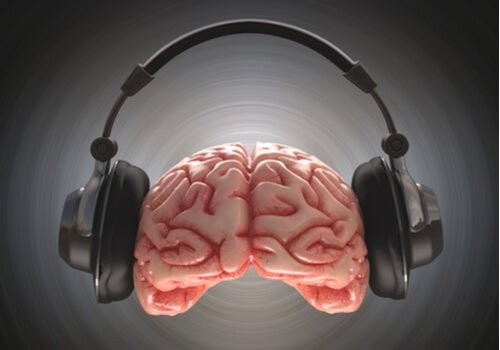
Music is a universal language capable of awakening unique emotions and sensations. Sometimes you hear someone sing in an unfamiliar language, but you can feel what they want to convey, even if you don't know specifically what the lyrics say. What you do know is that he is expressing something happy, or sad, or dramatic, etc.
Music is like chocolate, almost everyone likes it. This has happened since time immemorial. Since the culture itself exists, there is also a place for those rhythmic sounds that communicate feelings. In all times and in all civilizations there has been this very particular form of expression, so rich in styles.
"When I feel fearful, I hold my head up / and whistle a happy tune, so that no one suspects that I am afraid ... / And each time / the happiness of the tune convinces me that I am not afraid."
-Rogers and Hammerstein-
Without realizing it, sometimes we turn to music looking for a container for feelings that overwhelm us, a place where they can overflow freely without harming anyone. Other times we get together to dance and make the musical rhythms set the party's rhythm. We also look for melodies to calm us down, or to study or work. But what really is the influence of music on our mind?
An experiment around music
This experiment was carried out at the BUAP faculty of psychology in Mexico. It was directed by Professor Roberto Valderrama Hernández. Their purpose was to find out what the effect of a "strong" melody was on anxiety. By "strong" melody is understood one that has an irregular, marked, fast rhythm and listened to a high volume. It basically corresponds to "heavy metal" or "heavy metal".

137 subjects were chosen for the study. Among them, 31 were men and 106 women. The average age was 20 and they were all psychology students. First they were given a test to measure their state of anxiety. Afterwards they were made to listen to fragments of heavy metal of 5 minutes each. In total, each respondent completed a 47-minute listen.
The researcher was able to observe that during the listening lapses, the participants increased nervousness. They were restless and expressed it by constantly changing position and with erratic movements of the hands and feet.
Valderrama was able to conclude that this type of exciting melodies increased the level of anxiety. The explanation is that these kinds of rhythms intensely stimulate the sympathetic system and this increases physical and psychological tension. If this is not released through movements such as dancing or jumping, the energy accumulates and gives rise to symptoms of anxiety.
The positive effect of music
That the musical notes "generate" energy is not a problem. The problem comes when this energy cannot be spent doing physical activity. In that sense, "loud music" is great for situations that call for energetic or competitive behavior.

Also, musical notes have the ability to relax us. It is achieved with those genres that have more regular, slow rhythms and the volume is not as high. Some pieces of classical, instrumental, or soft pop music help to calm us down. They are used even in rooms where radiation therapy or aggressive medical treatments are carried out.
Science has been able to establish that musical rhythms stimulate different areas of the brain. In fact, research from the University of Florida suggests that musical rhythms offer more brain activation than any other known stimulus. Among the main positive effects are the following:
Strengthens learning and memory.
Regulates hormones related to stress.
It allows to evoke experiences and memories.
It affects the heartbeat, blood pressure and pulse.
Modulates the speed of brain waves.
Good music has also been proven to strengthen the immune system and lead to better health. Not for nothing do cows give more milk when Mozart sonatas are put on them. The fact that plants flourish more when there is background music is not random either. The key is to find the rhythm that can favor us in each specific situation, so that we can make the most of it in our favor.